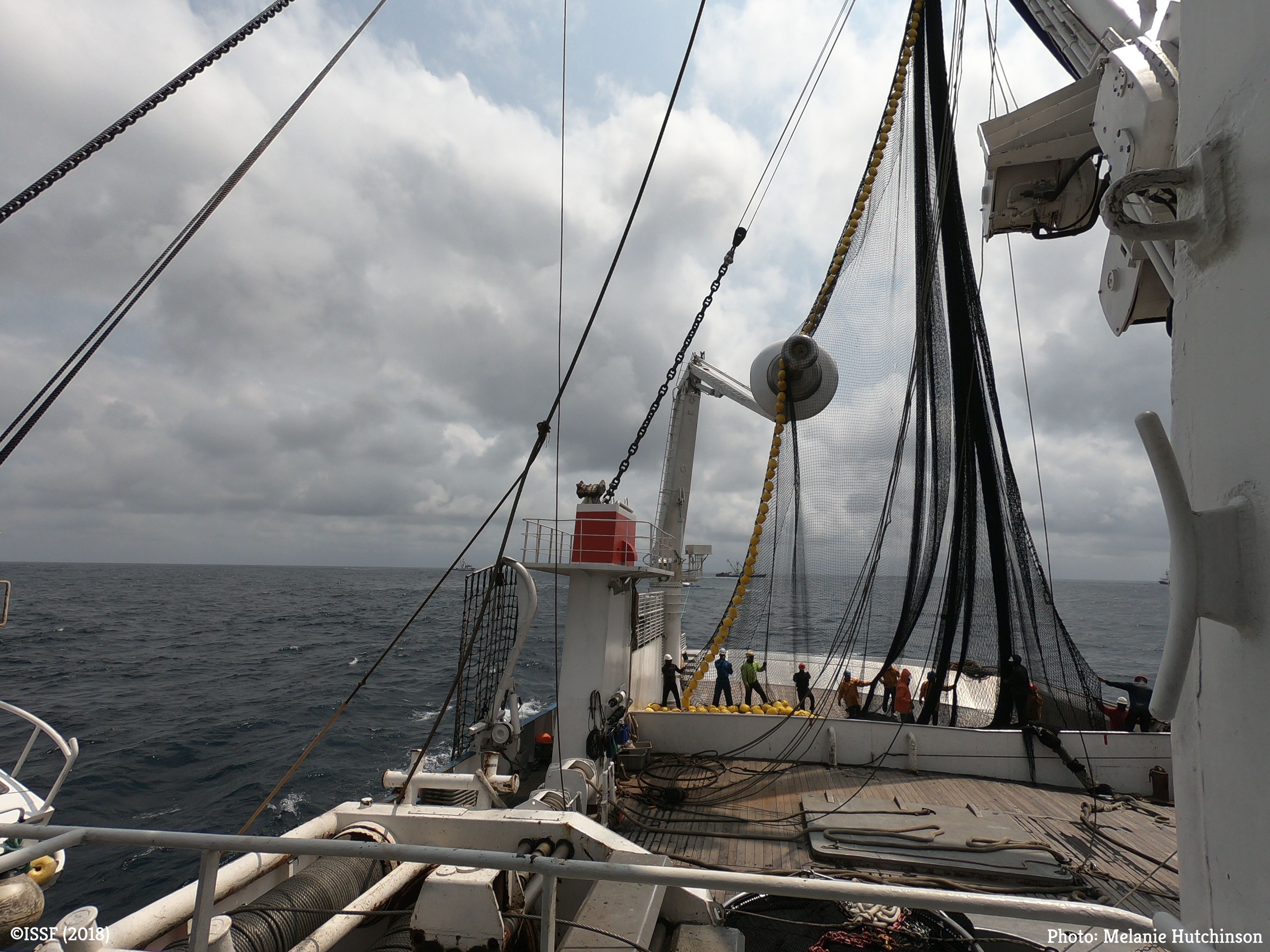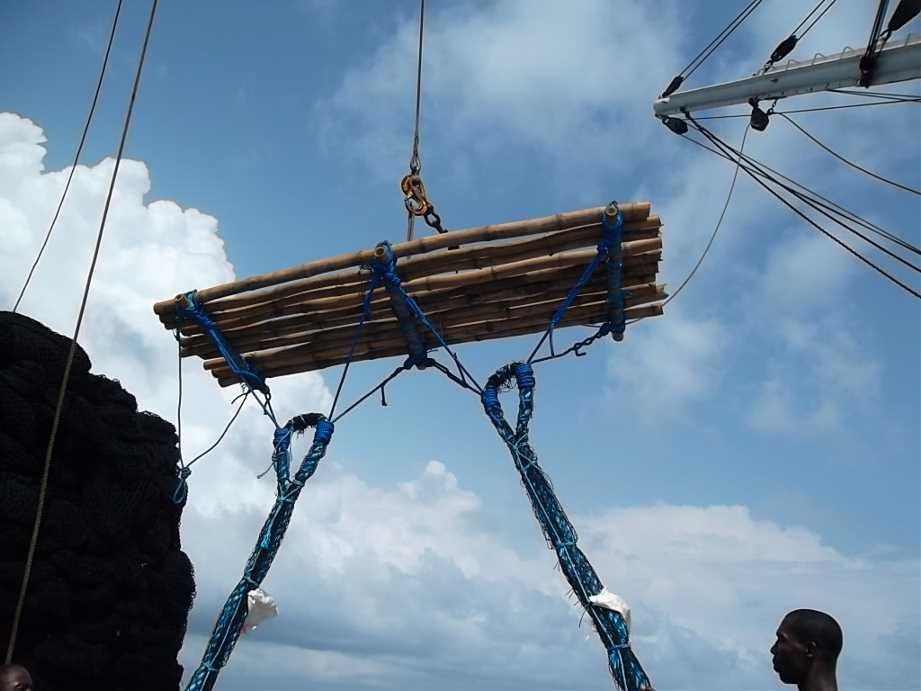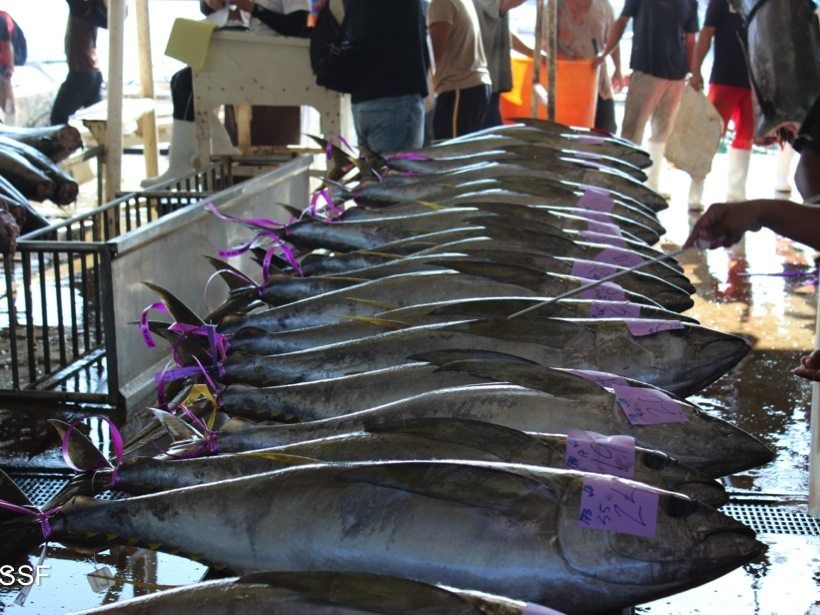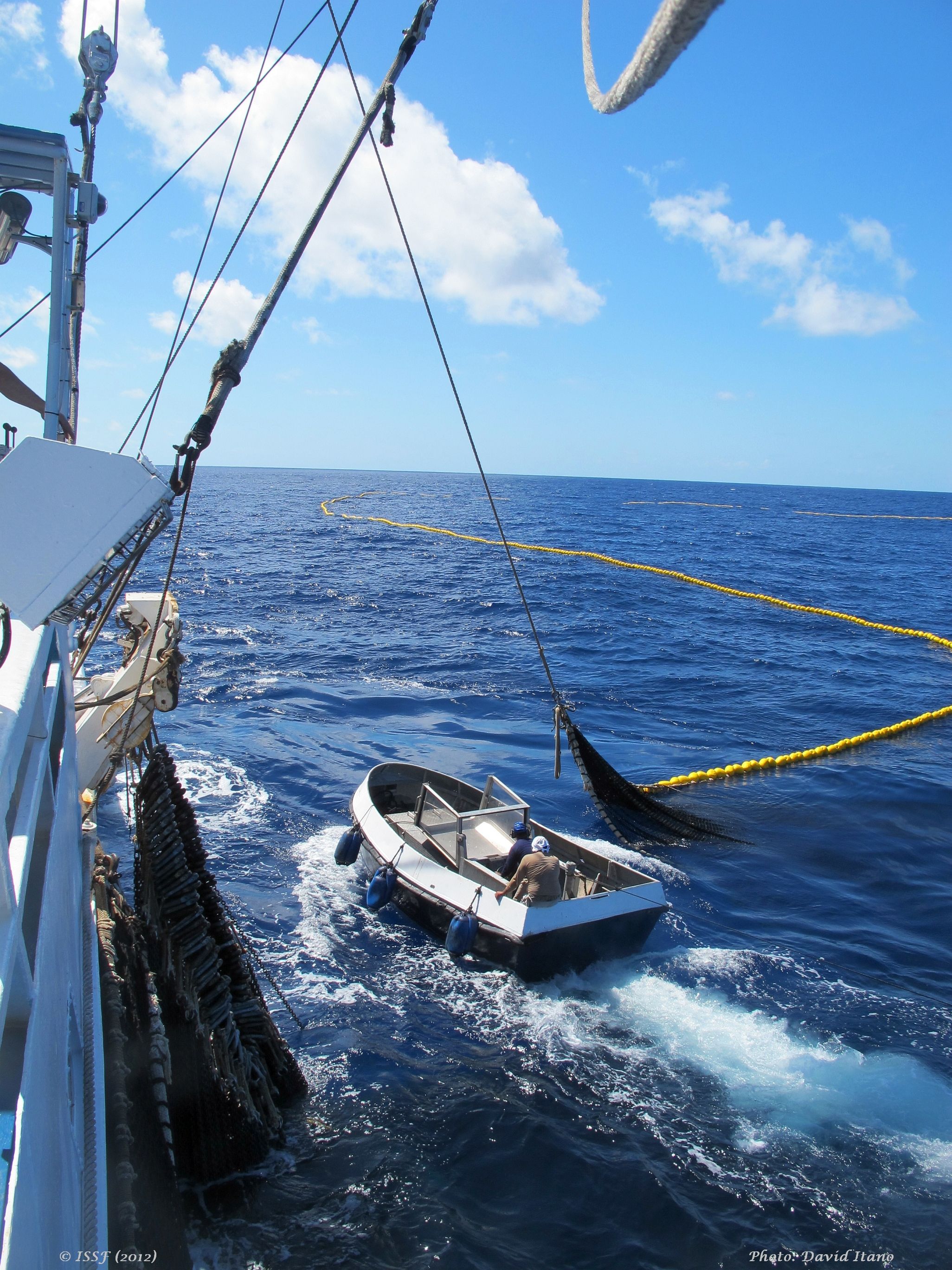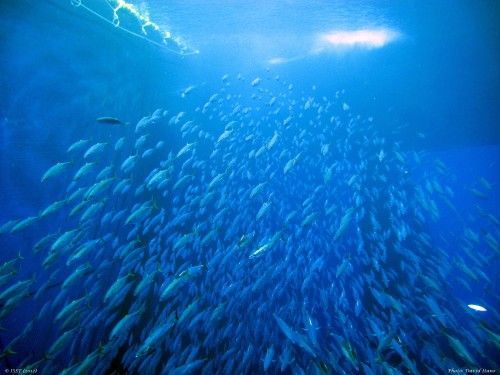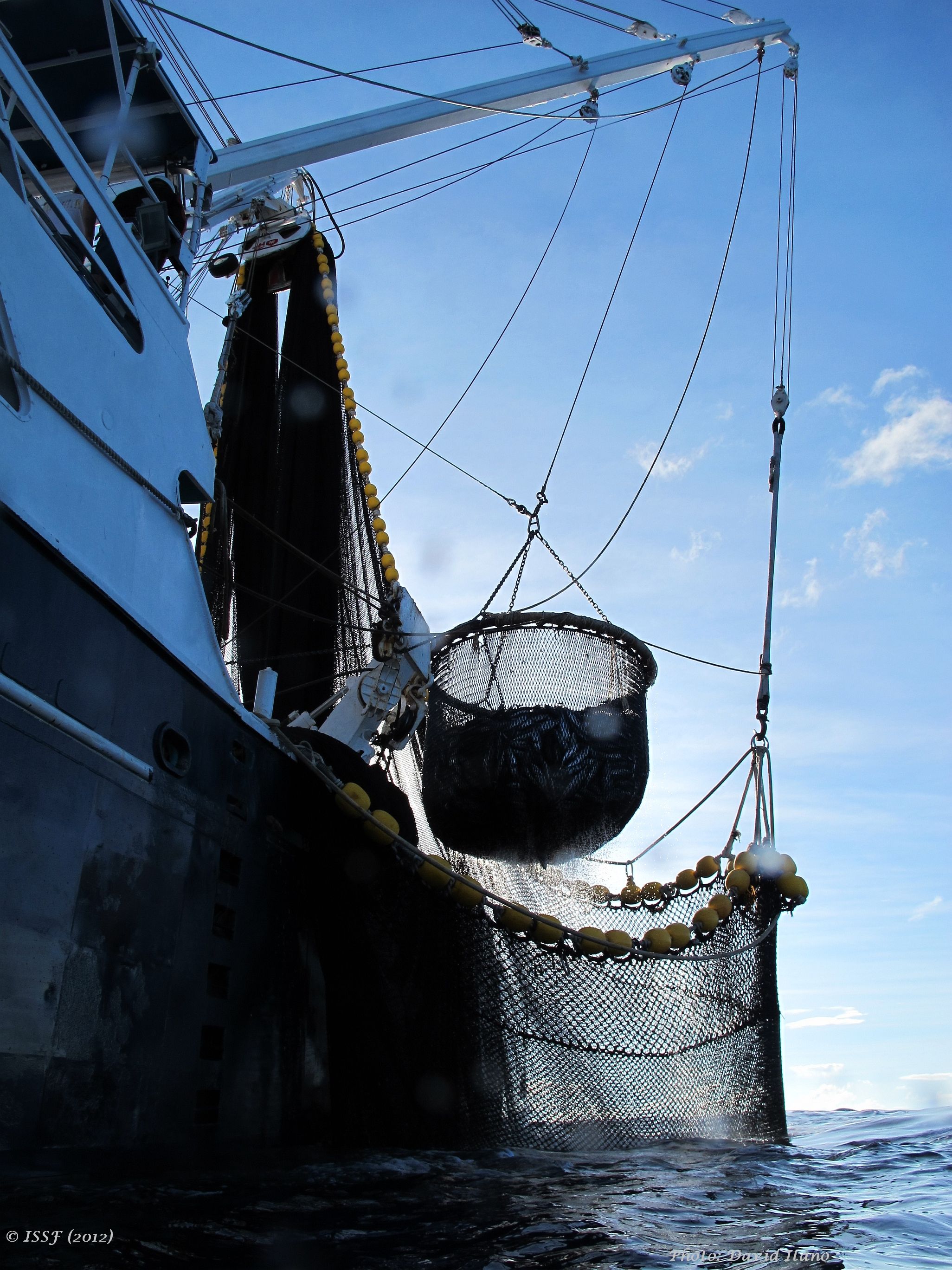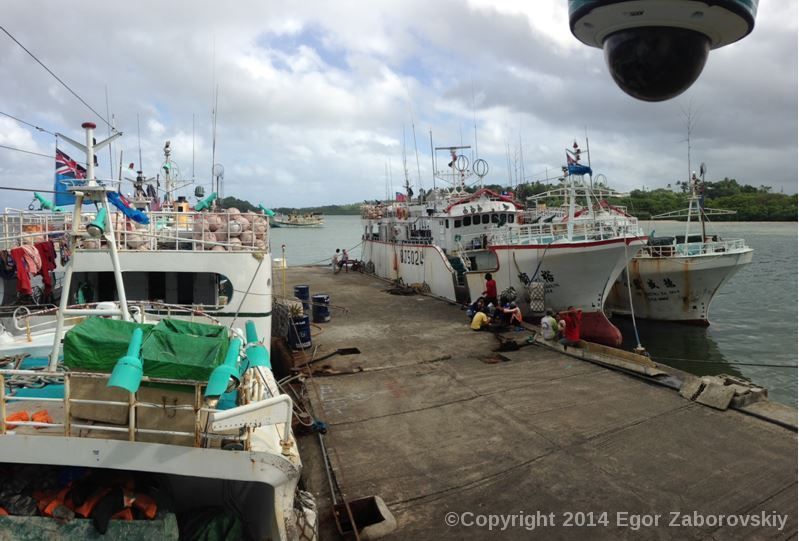ISSF Announces New Conservation Measure to Bolster Fish Aggregating Device (FAD) Management across Global Tuna Fisheries
The International Seafood Sustainability Foundation (ISSF) today announced the adoption of a new conservation measure requiring that fishing vessels have publicly available fish aggregation device (FAD) management policies to comply with ISSF supply-chain recommendations for marine ecosystem health. These policies must be in line with science-based best practices outlined in ISSF’s report, “Recommended Best Practices for FAD Management in Tropical Tuna Purse Seine Fisheries.”
Our new #conservation measure helps companies source #tuna from #vessels following best practices in #FAD management. Share on X“Since ISSF’s founding 10 years ago, we’ve prioritized better management of FADs and the reduction of bycatch and other marine ecosystem impacts across all oceans,” explains ISSF President Susan Jackson. “This new conservation measure gives leading seafood companies a clear framework, based on years of scientific research, in sourcing tuna from vessels that are following best practices in designing, deploying, and recovering FADs — and also in reporting FAD data to Regional Fisheries Management Organizations (RFMOs).”
ISSF Conservation Measure 3.7 Transactions with Vessels or Companies with Vessel-based FAD Management Policies, approved by the ISSF Board of Directors to take effect in 2021, states that ISSF participating companies shall conduct transactions only with those purse seine vessels whose owners develop and make public FAD management policies that include the activities purse seine and supply vessels are undertaking (if any) on the following elements:
- Comply with flag state and RFMO reporting requirements for fisheries statistics by set type
- Voluntarily report additional FAD buoy data for use by RFMO science bodies
- Support science-based limits on the overall number of FADs used per vessel and/or FAD sets made
- Use only non-entangling FADs to reduce ghost fishing
- Mitigate other environmental impacts due to FAD loss including through the use of biodegradable FADs and FAD recovery policies
- For silky sharks (the main bycatch issue in FAD sets), implement further mitigation efforts
Helping global tuna fisheries become capable of achieving Marine Stewardship Council (MSC) certification without conditions has long been an ISSF objective, and improved FAD management is an important component of meeting the MSC standard. Conservation Measure 3.7 is ISSF’s second measure focused on FADs specifically, and its tenth measure focused on bycatch mitigation in tuna fisheries.
For full details on Conservation Measure 3.7, read the complete text here: https://www.iss-foundation.org/what-we-do/verification/conservation-measures-commitments/bycatch-mitigation-3-7-transactions-with-vessels-or-companies-with-vessel-based-fad-management-policies/
Supply Chain Conservation Measure Expanded to Include FisheryProgress.org and MSC-certified Fisheries
ISSF conservation measures directly affect how 26 global seafood companies that are ISSF participating companies environmentally manage their respective tuna supply chains.
To support ISSF participating companies in sourcing sustainable tuna from processors and vessels and achieving greater supply-chain transparency, the ISSF Board has amended Conservation Measure 2.4 Supply Chain Transparency, Audit, Reporting and Purchase Requirements.
In addition to purchasing tuna from Supplier Source categories — peer ISSF participating companies, ISSF Data Check companies, direct from vessels — ISSF participating companies now can source tuna from an expanded array of sources represented by these Fishery Source categories:
- Marine Stewardship Council (MSC)-certified fisheries eligible to use the MSC label
- Comprehensive FIPs listed on FisheryProgress.org scoring A, B or C or in their initial listing on Fisheryprogress.org
- Comprehensive FIPs listed on FisheryProgress.org scoring D or E
By January 31, 2020, and annually thereafter, to comply with measure 2.4, participating companies must publicly report the percentage of tuna sourced from the Supplier Source and/or Fishery Source categories.
The complete measure is available here: https://www.iss-foundation.org/what-we-do/verification/conservation-measures-commitments/traceability-data-collection-2-4-supply-chain-transparency-audit-reporting-and-purchase-requirements/.
ISSF provides application forms for companies interested in becoming a participating company or Data Check company, including Terms and Conditions for Data Check Companies.
About ISSF Conservation Measures & Compliance Process
ISSF is a global partnership among scientists, the tuna industry and the environmental non-governmental community whose mission is to undertake science-based initiatives for the long-term conservation and sustainable use of tuna stocks, reducing bycatch and promoting ecosystem health.
Since its inception in 2009, ISSF has adopted conservation measures and commitments to facilitate this mission with the intent that processors, traders, marketers and others involved in the seafood industry will follow them to facilitate real and continuous improvement across global tuna stocks. Each ISSF participating company commits to conform to these conservation measures to improve the long-term health of tuna fisheries. They also must adhere to the ISSA Compliance Policy.
ISSF-participating tuna companies, which represent the majority of the world’s canned-tuna production and include well-known brand names, are audited yearly by MRAG Americas on their compliance with ISSF conservation measures.
